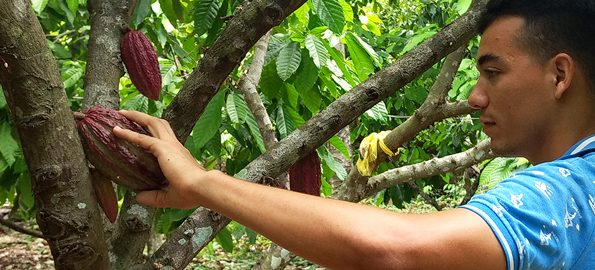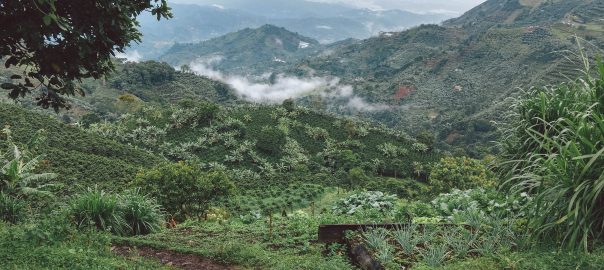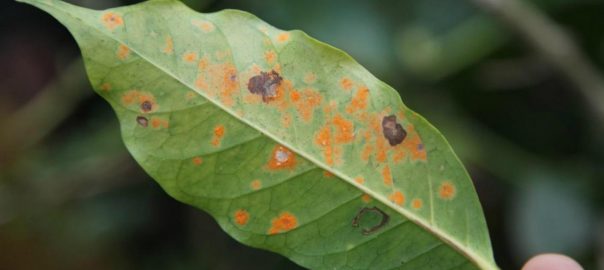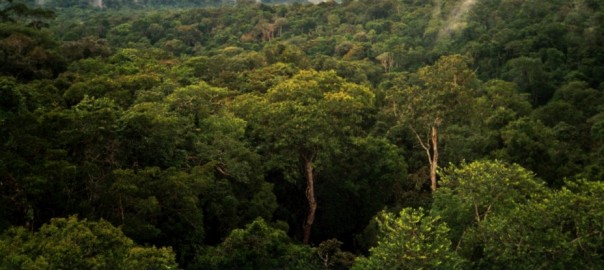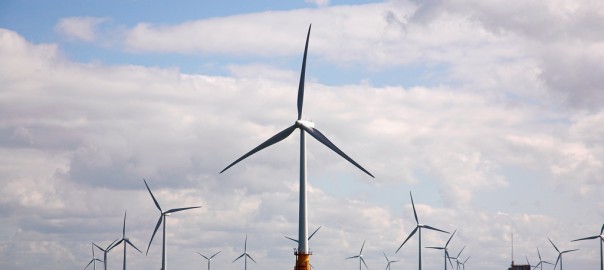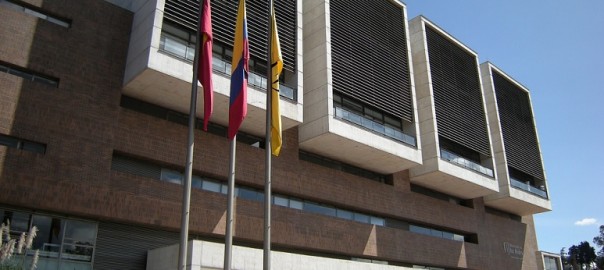Category: Colombia
Coffee farmers struggle to adapt to Colombia’s changing climate
by Jessica Eise and Natalie White Continue reading Coffee farmers struggle to adapt to Colombia’s changing climate
Climate change ruled out as driver of Colombian coffee leaf rust epidemic
Postobón Takes Down Advertisement That Portrays Risks of Soda
Forests gain long-awaited recognition in Paris climate summit
Five impressive scientists we met in 2014
Ezequiel Petrillo in Argentina Ezequiel Petrillo (pictured above) is an Argentine biochemist studying how chloroplasts behave differently depending on the amount of light exposure. He is trying to understand how a plant self-regulates and adapts to different environmental conditions by employing alternative RNA splicing, a process by which a single gene can give rise to … Continue reading Five impressive scientists we met in 2014
Latin America: More than 50,000 kilometers of coastline of offshore wind potential
by Luis Armando Pagan Quinones In recent years, Latin America has experienced sustained economic and population growth. Due to this growth, energy demand in Latin American countries continues to rise and governments will need to develop a strategy to meet their energy needs in sustainable ways. The World Bank and the International Energy Agency … Continue reading Latin America: More than 50,000 kilometers of coastline of offshore wind potential
An interview with Colombian malaria researcher Manuel E. Patarroyo
Last month we had the opportunity to interview Dr. Manuel Elkin Patarroyo, recognized as the creator of the first synthetic vaccine against malaria. He was interviewed by Roberto Sánchez Torre, Martha Cecilia García and Ana Victoria Rodriguez Jaime. Continue reading An interview with Colombian malaria researcher Manuel E. Patarroyo
Can Colombia reverse the brain drain of its scientists?
by Enrique Angarita Continue reading Can Colombia reverse the brain drain of its scientists?
The dengue detectives
Control teams, mosquitoes and climate change on the frontlines of Latin America’s dengue epidemic Continue reading The dengue detectives
New ‘Game of Thrones’ slug found in Brazil, the ‘sponge effect’ of Latin America’s tropical forests, and Peru’s scientific cruise sails for Antarctica.
BRAZIL Brazilian scientists have discovered a slug that lives on the northwest coast of the country which they dubbed Tritonia khaleesi in honor of the character from the renowned television series “Game of Thrones.” The slug can grow up to 12 mm long and has a white stripe along the body that resembles the braid … Continue reading New ‘Game of Thrones’ slug found in Brazil, the ‘sponge effect’ of Latin America’s tropical forests, and Peru’s scientific cruise sails for Antarctica.
Weekly digest: An in-depth look at Belo Monte dam, the threat of a fungus on Latin America’s bananas and exporting the Galapagos model to Chile.
BRAZIL In mid-2011, construction started on Brazil’s Belo Monte hydroelectric dam on a southeast tributary of the Amazon started and by early 2015 should supply 18 million people with its 11,200 MW capacity. Of course, that’s when the Xingu river is flowing at full strength. The average capacity will generate 4,500 MW. Folha de Sao … Continue reading Weekly digest: An in-depth look at Belo Monte dam, the threat of a fungus on Latin America’s bananas and exporting the Galapagos model to Chile.
Peru’s disappearing glaciers, a state of emergency in Brazil due to a caterpillar, and Rio de Janeiro’s sewage problems.
BRAZIL Brazil has declared a state of emergency in Mato Grosso, its main crop growing state, due to an infestation from an invasive caterpillar in corn, soy and cotton crops. Last summer, the pests caused $4.7 billion in damage. [inlinetweet prefix=”” tweeter=”” suffix=”via @LatAmSci”]Rio de Janeiro is having sewage problems at the site of its … Continue reading Peru’s disappearing glaciers, a state of emergency in Brazil due to a caterpillar, and Rio de Janeiro’s sewage problems.
Dolphins slaughtered off Peru’s shores, leukemia therapy in Brazil and tree species in the Amazon.
PERU Activists videotape the slaughter of dolphins off the coast of Peru. t.co/GRXDLE7mrw Corruption in Peru Aids Cutting of Rain Forest here. ARGENTINA AP finds deadly consequences of pesticide use in rural Argentina, dangerously close to schools here. BRAZIL Researchers in São Paulo develop nanoparticles to detect leukemia here. A fire in Brazil’s largest port burns … Continue reading Dolphins slaughtered off Peru’s shores, leukemia therapy in Brazil and tree species in the Amazon.
21 minds met in Mexico to talk about astrophysics, climate change and how to improve science in Latin America.
Under the slogan “The future is decided in Mexico,” the Universal Thinking Forum in Mexico City last week brought together 21 presenters under one roof along with 3,000 attendees. The speakers presented in just 21 minutes their ideas and proposals on philosophy, politics and science and how to change the world. Question and answer … Continue reading 21 minds met in Mexico to talk about astrophysics, climate change and how to improve science in Latin America.
Argentine scientists study memory and forgetting in crabs, drug-trafficking in Bolivia’s Gran Chaco, and the state of science in Colombia.
ARGENTINA Scientists in Argentina are studying the crab Chasmagnathus granulathus to study how memories are formed and altered in the brain. The researchers are studying the protein NF-kB which is implicated in forgetting–a process that is arguably just as important as remembering. Revista Anfibia’s photos are here. Argentine researchers are developing robots for incorporation into … Continue reading Argentine scientists study memory and forgetting in crabs, drug-trafficking in Bolivia’s Gran Chaco, and the state of science in Colombia.
Engineering life in Latin America
Since 2006, Latin American students have been designing biological machines with specific missions: to remove nickel from contaminated drinking water in Colombia; to sense and respond to arsenic in Argentina; and to target and destroy cancer tumors in Mexico. These projects are university submissions to the International Genetically Engineered Machine competition, iGEM, started in … Continue reading Engineering life in Latin America

